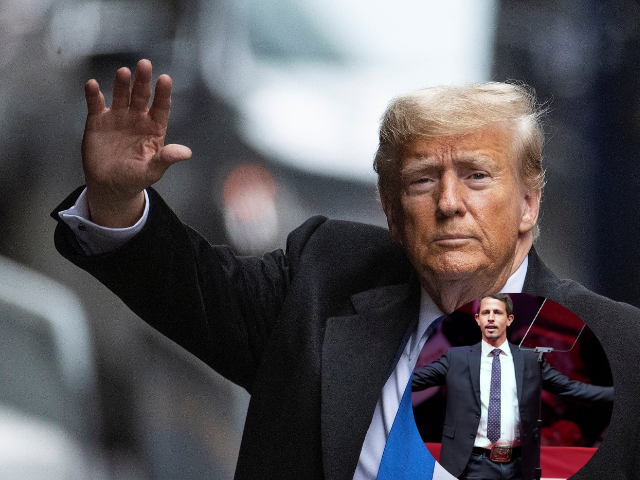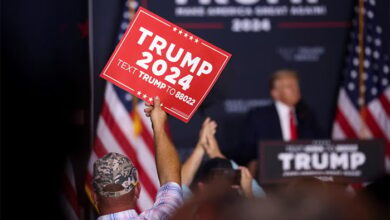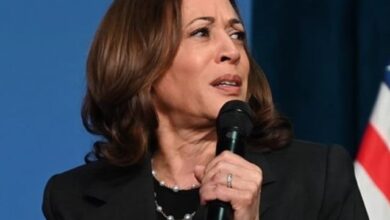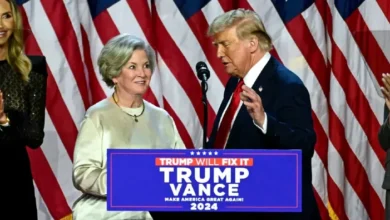Shares of Donald Trump’s social media company, Trump Media & Technology Group, experienced a significant surge of over 21% on October 28, 2024, following a high-energy campaign rally at Madison Square Garden.
The stock closed at $47.36 per share, eclipsing its recent mid-summer high, which had been driven by intense media scrutiny after Trump narrowly escaped an assassination attempt during a rally in Pennsylvania.
This recent rally in New York City attracted thousands of supporters, showcasing Trump’s enduring popularity among his base.
The volatility of DJT stock has been notable over the past few months.
Following the assassination attempt, the stock saw a spike but subsequently fell below $12 by late September. October has brought a recovery, with the stock now back to levels seen in July.
Analysts suggest that the fluctuations in Trump Media’s stock value are not necessarily reflective of the company’s operational performance—particularly given that Truth Social, the platform run by Trump Media, generates limited revenue and has a relatively small user base.
Instead, the stock appears to function as a proxy for pro-Trump retail investors rallying behind the former president as he campaigns for a return to the White House.
This latest stock surge coincides with a shift in the political betting landscape.
Betting platforms such as Polymarket and Kalshi have shown increased favorability towards Trump, despite national polls indicating a tightly contested race with Vice President Kamala Harris.
Concerns have emerged regarding potential manipulation of these betting markets, particularly after reports highlighted a French national making significant pro-Trump bets through multiple accounts.
Polling data illustrates the current competitive landscape of the election.
A recent Forbes/HarrisX poll, conducted with 1,244 likely voters, shows Trump leading Harris by two percentage points, with 51% support for Trump compared to Harris’s 49%.
This marks a significant turnaround from earlier months when Harris maintained a lead in many surveys.
Additionally, a Wall Street Journal poll of 1,500 registered voters indicates Trump ahead by three points, with 49% supporting Trump versus 46% for Harris.
These trends reflect a noticeable shift in voter sentiment, suggesting that Trump is gaining traction as the election date approaches.
Both candidates are intensifying their campaign efforts as Election Day nears. Trump, who has held rallies in key battleground states, aims to solidify support among religious voters, particularly in Georgia.
His recent rally in New York showcased his hardline stance on immigration, where he pledged to deport what he described as “vicious and bloodthirsty criminals,” echoing themes that resonate with his core supporters.
Conversely, Harris is focusing her campaigning on states like Michigan, where she plans to highlight her administration’s economic initiatives and the importance of investing in manufacturing jobs.
During her campaign, Harris has engaged with voters in various settings, including community events aimed at connecting with working-class individuals.
Her rhetoric emphasizes unity and a forward-looking agenda, positioning herself as a candidate focused on addressing the needs of the American people.
As the two candidates vie for undecided voters, the dynamics of their campaigns are becoming increasingly stark. Trump continues to advocate for a return to policies from his previous administration, citing achievements in the economy prior to the COVID-19 pandemic.
Despite the challenges faced during the pandemic’s onset, he argues that his leadership was superior to that of the current administration.
In contrast, Harris is pushing for proposals aimed at mitigating rising costs and addressing housing issues, seeking to appeal to voters who are feeling the pinch of inflation and economic uncertainty.
The upcoming election is shaping up to be closely contested, with early voting already indicating robust participation—over 41 million Americans had cast their votes as of the latest reports.
However, this turnout still lags behind the record-setting numbers seen in the 2020 election, which was heavily influenced by the pandemic.
Both campaigns recognize the critical importance of energizing their bases while also appealing to undecided and independent voters who could swing the election.
As the race enters its final stretch, the interplay between stock prices, betting odds, and voter sentiment will be crucial in determining the outcome of the election.
Analysts and supporters alike will be closely monitoring the unfolding events, as both candidates work tirelessly to secure their paths to victory in what promises to be a historic election.







